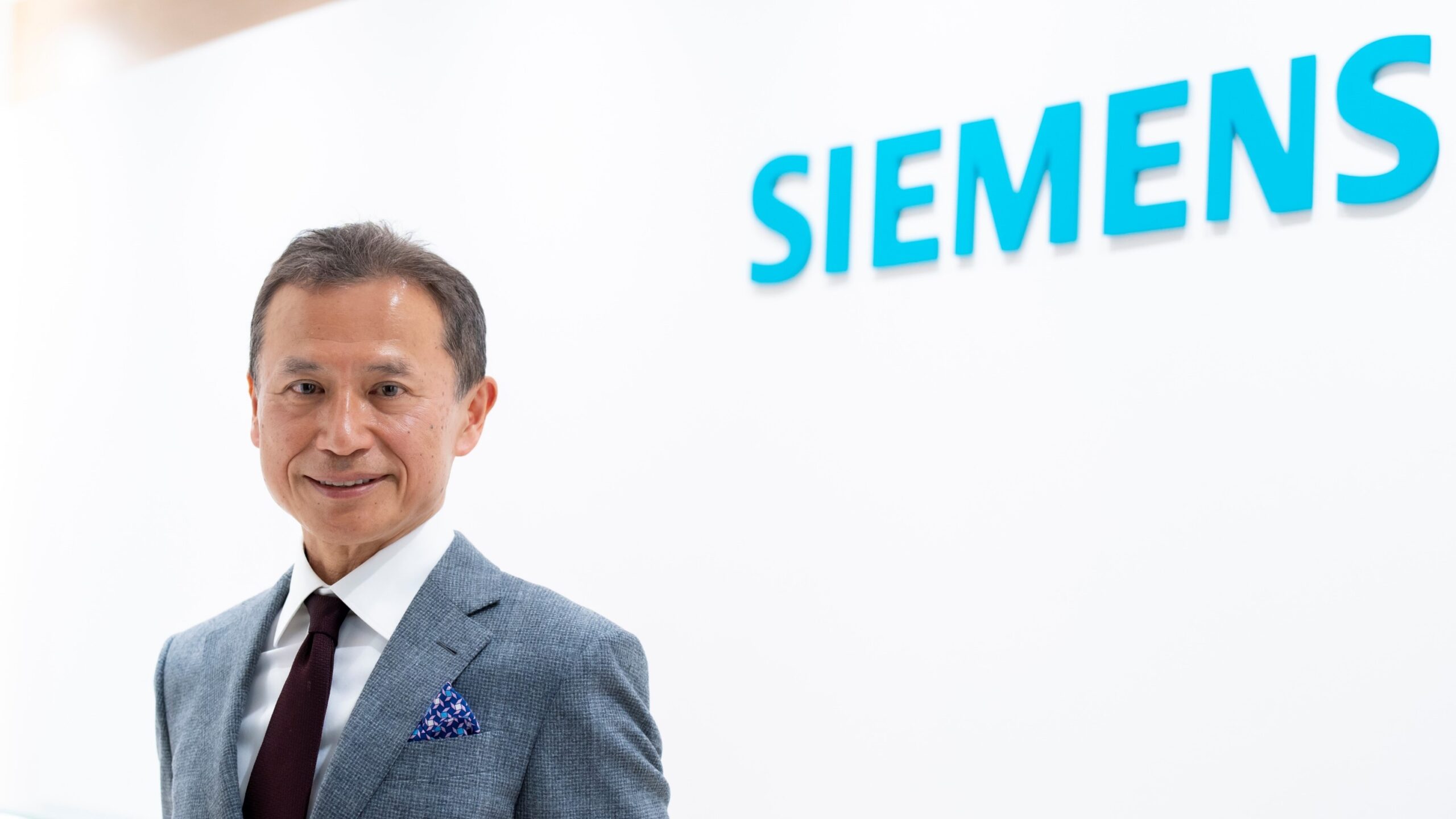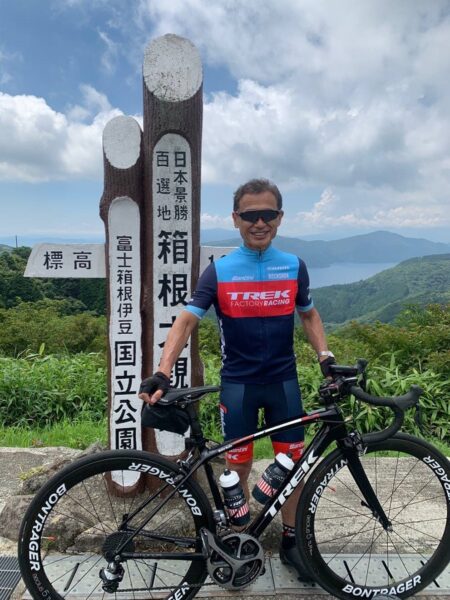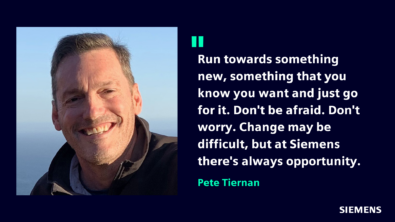Kuni Horita

Software is eating the world. Marc Andreessen first asserted as much back in 2011 and today, the phrase is as close to axiomatic as it gets when pondering the future. This is why when considering Siemens digital transformation efforts around the world, it makes sense to pay close attention to Japan, a global top three in categories such as GDP per person and manufacturing output, and where not incidentally, the industrial software market is thriving. Kuni Horita, President and CEO of Siemens Japan, talks about the history of industrial software in Japan, the skills he needs most on his team, and what conventional wisdom about the Japanese business and economic climate seems to miss.
Talk about your country leadership position. It sounds like your role is quite unique for Siemens.
Kuni: I joined LMS as country manager in 2008. When LMS was acquired by Siemens in 2013, I was assigned as country manager for Siemens Industry Software. We were fortunate and did well, expanding our business across all industries and many major customers – Nissan, Suzuki, Yamaha, Canon, and Sony. We also had a few big wins, notably in aerospace. Three years ago, I was asked to wear two hats, to also be CEO of the Siemens regional company (RC). (Editor’s note: Siemens RC CEOs are essentially the top overall company representative and lead executive for all Siemens business units in a given country or region.) This was a first in Siemens’ history…someone coming from software to also lead an RC.
If you’d like to move here and you’re not Japanese? Japan is opening up to the world in dramatic fashion, almost similar to what happened 150 years ago. There is digital catch-up going on across all aspects of society – government, banking, insurance, and heavy industry. Learn a technology and a bit of Japanese, then come here and be an evangelist. Don’t worry about being perfect…just come with enough experience to be credible.
Kuni Horita, President and CEO of Siemens Japan
Given your role, you have a unique vantage point to see what’s happening in the Japanese economy. What’s the mood in the business community there? And what does the rest of the world get wrong about Japan?
Kuni: I lived in the United States in the early 1990s at the end of Japan’s bubble era when, for example, the country’s theoretical land value was calculated to be worth four times that of the United States, which is four times as large. At the time, there was a strong feeling in the world-at-large that the United States was stagnating, quite similar to conventional wisdom about Japan for the last many years. Certainly, there is something to the criticism that business in Japan is too conservative and too focused on quality over innovation. Yet, like the United States in the 1980s and 1990s, I see a whole groundswell of small, fast-growing companies, many of which aren’t yet on the international radar. It may take another 10 years, but these companies will make an impact and change things. Now, am I talking about the next Microsoft, Apple or Facebook? Probably not. But Japan might lead as a society in the best applications and adoption of the digital twin — the merging of the physical and virtual worlds — whether in transportation, robotics in manufacturing or other areas.
What’s the history of the industrial software market in Japan? Are there home-grown vendors?
Kuni: Not many. I worked for a Japanese heavy industry company in the late 1980s that tried to diversify and create its own 3D modeling software, spending the then equivalent of around $50 million, which wasn’t enough. In general, multinational, non-Japanese companies dominate in industrial software and have for decades. This was not necessarily due to early technological advantages or ease of use but rather to economic policy. One response to Japan’s boom in the 1980s was extraordinarily high U.S. tariffs on Japanese manufactured products, especially vehicles. In response, Japanese carmakers invested in manufacturing facilities in the U.S. (since cars built and sold in-country would avoid the tariffs.) So just as a matter of efficiency and ease of collaboration with their U.S. operations, these manufacturers adopted existing market-leading industrial software, mostly from the U.S. and Europe. The processes used at the time in Japan of digitalizing highly manual, paper-based workflows, consisting primarily of documents in the Japanese writing system, just wouldn’t scale to international sites. I should say that today, in the cloud era, there is a big move away from customization toward out-of-the-box functionality, which is why Teamcenter X has been especially well received so far by several of our customers.
What skills are you most looking for on your team? And do you have any advice for someone looking to perhaps move to Japan for Siemens?
Kuni: I need people with industry-specific expertise, whether in semiconductors, consumer packaged goods or other verticals. When we win business, it’s not necessarily about technology features or price, but because we provide particular value or insights to a customer. I like to give good surprises…it’s a productive meeting when a customer says, “I didn’t know that…that’s useful.” And I’m looking for people who continually learn. Even now, I complete a 15-minute English conversation course every day on the radio. If you’d like to move here and you’re not Japanese? Japan is opening up to the world in dramatic fashion, almost similar to what happened 150 years ago. There is digital catch-up going on across all aspects of society – government, banking, insurance, and heavy industry. Learn a technology and a bit of Japanese, then come here and be an evangelist. Don’t worry about being perfect…just come with enough experience to be credible.
Care to dispel any misconceptions about Japan?
Kuni: There are several! I’ll just say Mt. Fuji looks very symmetrical, very peaceful, though up close, it’s quite difficult to climb…very rocky. Also, people get geishas all wrong. Traditionally, studying to be a geisha is much like studying classical ballet in Paris and not about working as an entertainer serving alcohol and food.

QUICK TAKES
Anything about you that might surprise colleagues?
I may be President & CEO, but I do all the dishes and laundry at home.
Book recommendation?
Anything by Dale Carnegie.
Favorite food?
I will just say I enjoy eating out in Tokyo, which has the most Michelin-starred restaurants in the world.
One technology you could live without? And one you wish the world would hurry up and invent?
I’ll answer with a twist: smartphones have changed everything, and of course, I appreciate their utility and convenience. But I’m also looking for distance from technology to preserve what it means to be human, which is why I never have earbuds when I exercise.
MORE
Read Kuni’s April 2023 LinkedIn welcome post to new employees of Siemens Japan.


